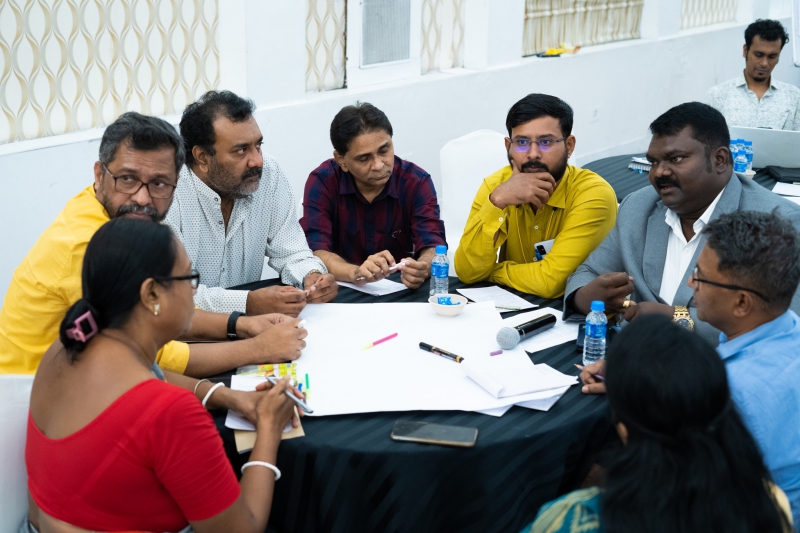AHTUs or Anti Human Trafficking Units were formed in India in 2010 through an MHA (Ministry of Home Affairs) advisory notification with the concept to address the critical agenda of building a convergence mechanism, where the Police, Government Agencies and NGOs will work together to address issues around human trafficking in a coordinated manner. The primary objective was for AHTUs to ensure that the various components of trafficking were addressed in a coordinated manner, with different agencies working together and communicating with each other as a separate system.
AHTU officials in Maharashtra, Andhra Pradesh, Rajasthan, Telangana and West Bengal were interviewed as part of a Study on AHTUs where they indicated that there were various challenges on ground, hindering effective functioning of AHTUs.
Firstly, AHTU officials in all the 5 States reiterated that unavailability of sufficient funds was a big challenge for them to function effectively. This challenge still remains despite the July 2020 Notification by the Ministry of Home Affairs (MHA) stating the release of funds worth Rs. 100 crores allocated from the Nirbhaya Fund for setting up new AHTUs and for strengthening existing AHTUs covering all districts of States and UTs.
It is to be noted here that the Central Government is only providing financial assistance to the State Governments for upgrading the physical infrastructure of AHTUs but it is the duty of the States to appoint suitable personnel to effectively manage the AHTUs and make them functional. It is also important to understand that without a legislative mandate, roles, responsibilities and accountability of AHTUs will not be established.
Therefore, it becomes evident that financial assistance provided by the Central Government is not enough to make AHTUs fully functional as it only covers fixed costs whereas the running costs need to be borne by the States. If the State Governments do not prioritise the role of AHTUs in curbing human trafficking, investigations will continue to be done by local police stations which will be restricted to the jurisdiction of specific police stations and robust investigations spread across source and destination States through AHTUs will not happen and the chain of circumstances will not be established hence leading to no convictions in cases of human trafficking.
Another significant challenge that emerged is the absence of appropriate channels of communication between different AHTUs within a particular State or Interstate which turns out to be a boulder in efficient investigation of cases and important exchange of information. To mitigate this, the AHTU officials interviewed, have mentioned that development of a centralised digital database and an exclusive communication portal for AHTUs would serve to be a very useful tool to enhance the effectiveness of AHTUs.
Finally, and perhaps most importantly the pan India research on the Status of AHTUs in India conducted by Sanjog in 2022-23, revealed that AHTU Officials do not feel that they are rendered as ‘important’ law enforcement officers and often despite their specialised role and expertise many cases within their jurisdiction are diverted to local police stations, diluting their power and undermining their credibility. This decentralization of authority often leaves AHTU officials feeling disempowered and undervalued, hindering their ability to execute their duties effectively.
To address this issue, a strategic approach is indispensable. The establishment of an independent nodal agency, overseeing AHTU operations, would provide the necessary autonomy and accountability. Additionally, recognizing the exceptional work of AHTU officials through awards and certificates of sorts would not only elevate their morale but also infuse a renewed sense of purpose in their roles. Such acknowledgment is crucial for AHTU Officials to work with enthusiasm and energy and therefore take up responsibilities more seriously.
It is also important that earmarked fund allocation at state and national level for targeted intelligence gathering and advanced investigative methods for complete investigation across state borders is allocated for AHTUs to improve their role taking and functioning.
A system strengthening approach involving Survivors of Human Trafficking, Government Duty Bearers and NGOs should thus look at the most fundamental challenges within AHTUs and address it at that level which will further serve to make AHTUs more effective task forces to combat human trafficking.
About the author: Madhurima Sanyal; a gender and development professional. Currently associated with Sanjog,India as a Researcher specializing in studying gaps in law enforcement in trafficked survivors' access to justice
